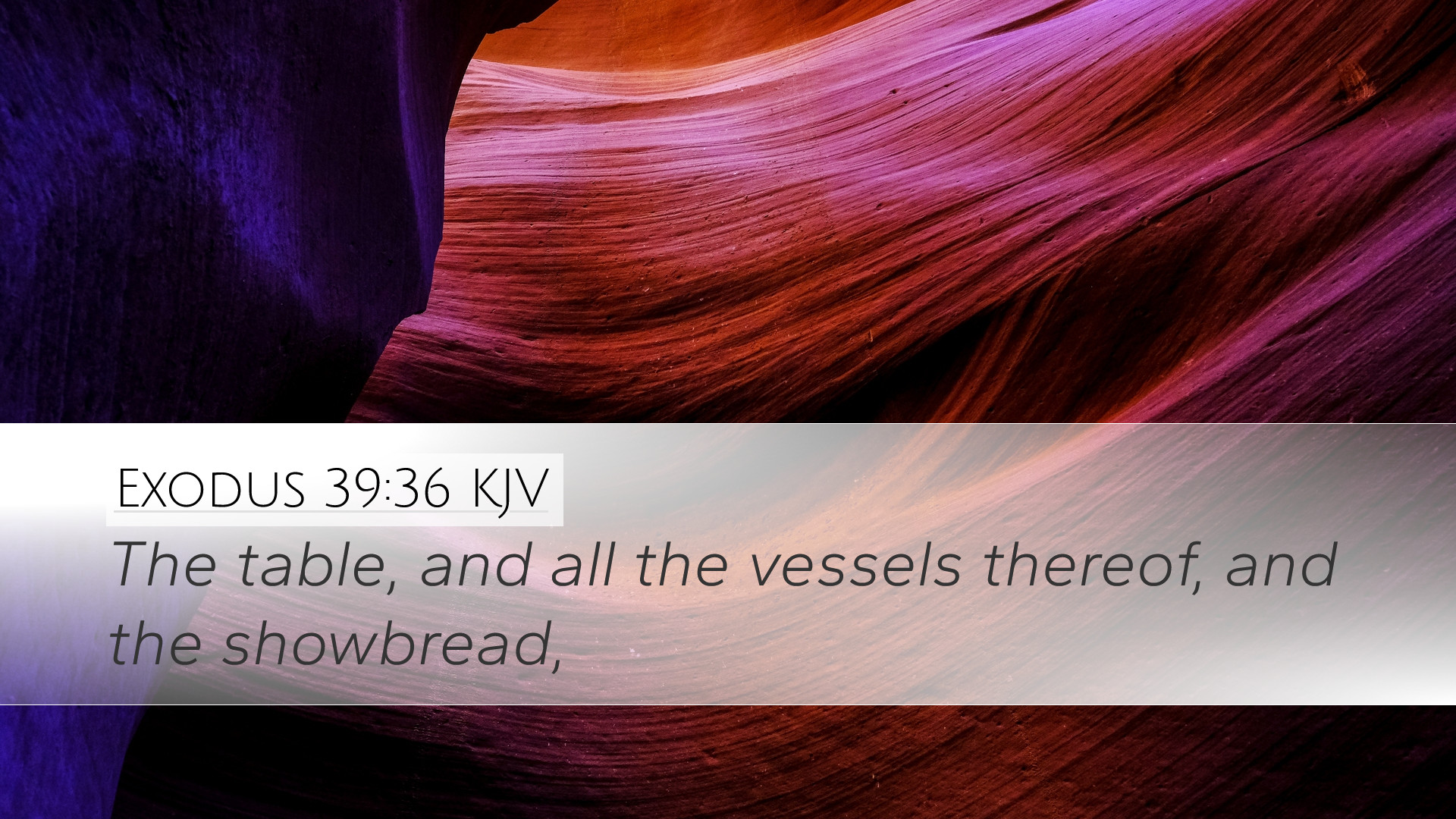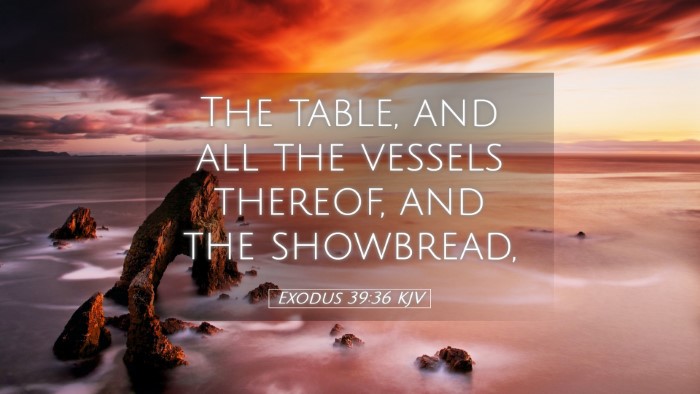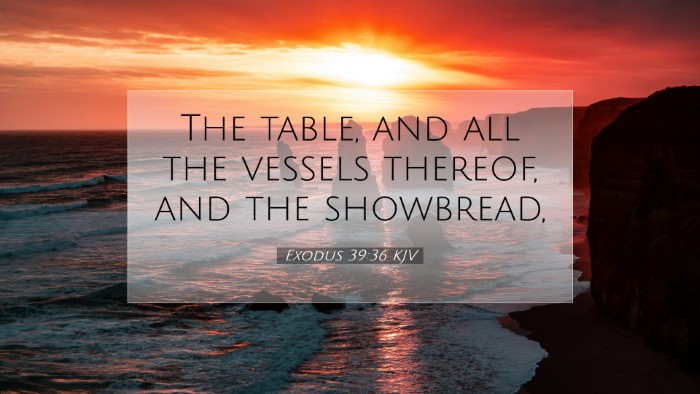Commentary on Exodus 39:36
Verse Overview: Exodus 39:36 states, "And they told Moses, saying, 'We have done all according to all that the Lord commanded us.'" This verse reflects the completion of the work on the Tabernacle and signifies a pivotal moment in Israel's history as they prepare to worship God in the wilderness.
Contextual Background
The verses surrounding Exodus 39 elaborate on the meticulous details involved in the construction of the Tabernacle, emphasizing God’s specifications given to Moses on Mount Sinai. The Israelites were commanded to create a place where God could dwell among them; thus, the fulfillment of these instructions symbolizes obedience and devotion.
Insights from Public Domain Commentaries
Matthew Henry's Commentary
Matthew Henry highlights the completion of the work, emphasizing the importance of obedience to God’s commands. He notes that the verse serves as a testimony of the faithfulness of the craftsmen and the entire community, who united in their labor to achieve a divinely appointed task.
- Obedience to Divine Command: Henry points out that the phrase "according to all that the Lord commanded" showcases their dedication to adhering strictly to God's instructions.
- Collective Responsibility: The collective nature of the statement emphasizes community cooperation in fulfilling God’s work.
- Preparation for Worship: Henry concludes that this completion ushers in the opportunity for Israel to engage in worship and sacrifice, marking a significant spiritual milestone.
Albert Barnes' Commentary
Albert Barnes provides a critical examination of the craftsmanship and royal dignity entwined within the making of the Tabernacle and its furnishings. He observes that the statement made by the workers reflects their humility and acknowledgment of God's ultimate authority and direction.
- Marvel of Craftsmanship: Barnes admires the skill and artistry involved, seeing it as a reflection of God's greatness, further encouraging the faithful to apply their talents to God’s service.
- Testimony of Completion: The phrase indicates a completion of duty and serves as an assurance to Moses that all was done as required.
- Expectation of God’s Presence: He emphasizes that the completion of the Tabernacle signifies readiness for divine visitation, where God promises to dwell among His people.
Adam Clarke's Commentary
Adam Clarke provides an in-depth perspective on the implications of the Tabernacle's completion, focusing on its theological significance within Israel's evolving relationship with God.
- Typology of Christ: Clarke interprets the Tabernacle as a foreshadowing of Christ, suggesting that just as the Tabernacle was a dwelling place for God, Jesus is the embodiment of God’s presence among humanity.
- Symbol of Divine Order: Clarke also highlights that each element of the Tabernacle reflects divine order and beauty, underscoring the idea that God is a God of order, not chaos.
- Covenantal Relationship: The completion of the work also signifies a renewal of the covenant, where God’s instructions were meticulously followed, reinforcing the obligation of the people to worship Him as prescribed.
Theological Implications
The commentary provided by these scholars offers rich theological implications for pastors and students alike. The act of fulfilling God's command in constructing the Tabernacle communicates a few key theological principles:
- The Nature of God’s Presence: The very fact that God commands a dwelling place emphasizes His desire to be among His people, which mirrors New Testament theology regarding the incarnation of Christ and the Holy Spirit's indwelling in believers.
- Worship as a Community: The shared responsibility indicates that worship and service should be a communal engagement, urging church leaders to cultivate a spirit of collaboration and mutual support within ministries.
- Call to Obedience: The painstaking attention to detail signifies that God values our obedience and the intention behind our service. It calls us to reflect on the motivations behind our actions in worship and ministry.
Practical Applications
In light of Exodus 39:36, congregations and leaders may consider several practical applications:
- Community Engagement: Encourage congregational involvement in church projects, recognizing that collective effort glorifies God.
- Artistry in Worship: Just as the craftsmen showcased their skills, churches today should value the gifts and talents of their members, allowing creativity to flourish in worship settings.
- Reverence for Divine Instructions: As believers engage in church life and worship, the importance of adhering to God’s Word should be a touchstone for every decision and action.
Conclusion
Exodus 39:36 encapsulates an important moment in Israel’s journey, reflecting themes of obedience, community, and the sacredness of worship. While the construction of the Tabernacle was a physical task, it conveyed deep spiritual truths. Through the insights of Matthew Henry, Albert Barnes, and Adam Clarke, modern readers are reminded of our call to faithfully carry out God’s work in our communities, embodying the presence of God in our worship and lives.


